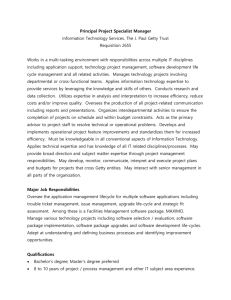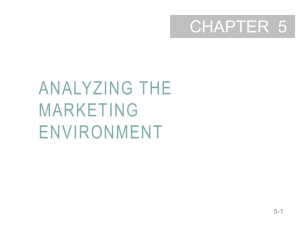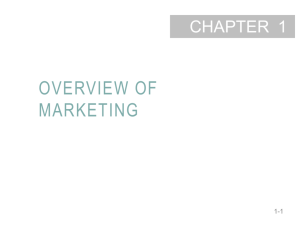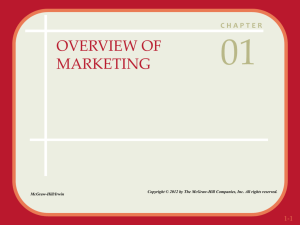Back Again: Jack Dorsey Is Just the Latest Founder to Return as CEO
advertisement
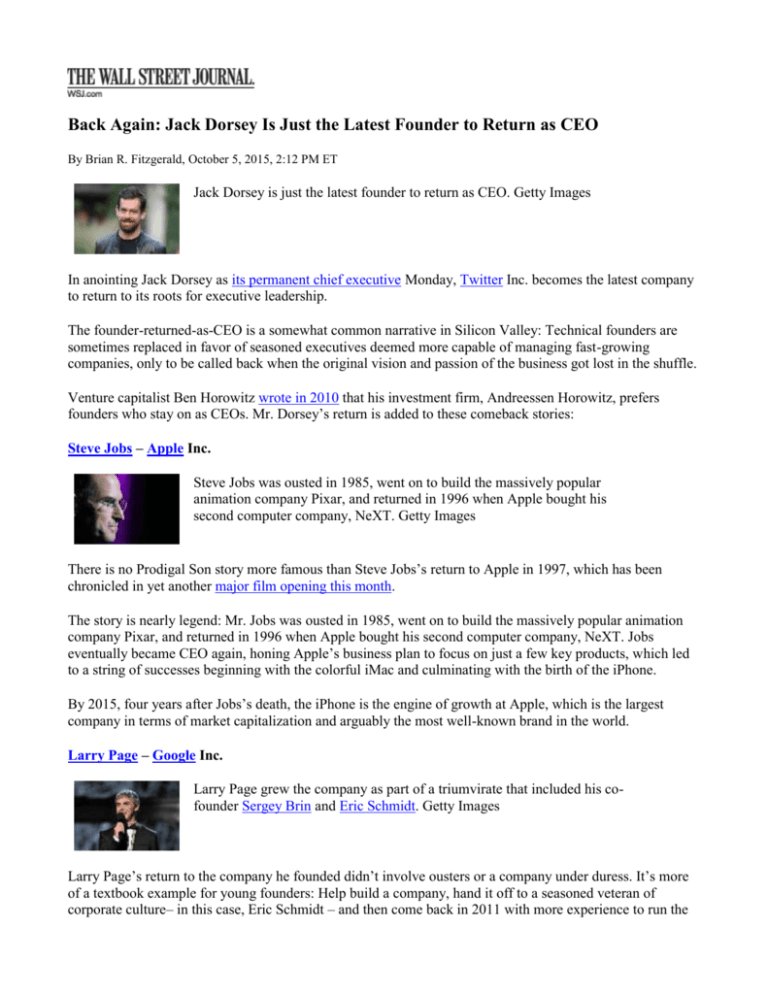
Back Again: Jack Dorsey Is Just the Latest Founder to Return as CEO By Brian R. Fitzgerald, October 5, 2015, 2:12 PM ET Jack Dorsey is just the latest founder to return as CEO. Getty Images In anointing Jack Dorsey as its permanent chief executive Monday, Twitter Inc. becomes the latest company to return to its roots for executive leadership. The founder-returned-as-CEO is a somewhat common narrative in Silicon Valley: Technical founders are sometimes replaced in favor of seasoned executives deemed more capable of managing fast-growing companies, only to be called back when the original vision and passion of the business got lost in the shuffle. Venture capitalist Ben Horowitz wrote in 2010 that his investment firm, Andreessen Horowitz, prefers founders who stay on as CEOs. Mr. Dorsey’s return is added to these comeback stories: Steve Jobs – Apple Inc. Steve Jobs was ousted in 1985, went on to build the massively popular animation company Pixar, and returned in 1996 when Apple bought his second computer company, NeXT. Getty Images There is no Prodigal Son story more famous than Steve Jobs’s return to Apple in 1997, which has been chronicled in yet another major film opening this month. The story is nearly legend: Mr. Jobs was ousted in 1985, went on to build the massively popular animation company Pixar, and returned in 1996 when Apple bought his second computer company, NeXT. Jobs eventually became CEO again, honing Apple’s business plan to focus on just a few key products, which led to a string of successes beginning with the colorful iMac and culminating with the birth of the iPhone. By 2015, four years after Jobs’s death, the iPhone is the engine of growth at Apple, which is the largest company in terms of market capitalization and arguably the most well-known brand in the world. Larry Page – Google Inc. Larry Page grew the company as part of a triumvirate that included his cofounder Sergey Brin and Eric Schmidt. Getty Images Larry Page’s return to the company he founded didn’t involve ousters or a company under duress. It’s more of a textbook example for young founders: Help build a company, hand it off to a seasoned veteran of corporate culture– in this case, Eric Schmidt – and then come back in 2011 with more experience to run the company. Mr. Page grew the company as part of a triumvirate that included his co-founder Sergey Brin and Mr. Schmidt, who for a long time was the designated executive parent in the room. It’s no longer a search business, but one that has tentacles in wireless phones, fiber optics, hardware, operating systems, self-driving cars and more. Google has grown so big that it just rechristened itself as a holding company called Alphabet Inc., consisting of the classic ad giant Google as one piece, and the moonshot endeavors as the other chunks. Michael Dell – Dell Inc. By 2013, Michael Dell had taken the company private so he could focus, as he said, on customers instead of activist investors. Getty Images Michael Dell founded his namesake computer company in his college dorm room and grew it into one of the biggest PC makers in the world by selling directly to customers online. He turned over the CEO title to his protégé Kevin Rollins in 2004 and held on to his role as chairman. By 2007, Mr. Dell was back in full control, grappling with a market whose tastes shifted rapidly over the years, from desktops to laptops to netbooks to handhelds, all while new competitors in Asia competed aggressively on prices. By 2013, Mr. Dell had taken the company private so he could focus, as he said, on customers instead of activist investors. Reid Hoffman – LinkedIn Corp. Reid Hoffman twice held the title of LinkedIn CEO and twice let it go. Getty Images Mr. Hoffman was chief for four years after founding the professional social network in 2003 before handing the title to Dan Nye, the man who was to carry LinkedIn to an initial public offering. By 2008, Mr. Hoffman was CEO again. The change was puzzling. In a press release announcing Mr. Nye’s departure, LinkedIn said the company had grown fivefold under his watch. Mr. Hoffman described the departure as friendly. The shakeup also saw former Yahoo executive Jeff Weiner, a LinkedIn investor, brought aboard to handle day-to-day operations. At the time of the shakeup, Mr. Hoffman, who has an outsized personality, said he needed to be at the company full time to carry its vision forward. Mr. Nye had said Reid was the right person to lead. But about six months later, Mr. Weiner was at the helm. LinkedIn went public in 2011. Mark Pincus – Zynga Inc. Mark Pincus has been trying to right the ship ever since he came back. Getty Images Mark Pincus didn’t spend too much time away from Zynga after handing the CEO reins to videogameindustry veteran Don Mattrick in 2013. He remained chairman at Zynga while focusing on other projects, but returned to the game maker in April 2015, saying he had enough time to “reflect and process” his past performance. Zynga exploded just as social games like Farmville became a popular part of Facebook Inc.’s website. But the company fell behind when gamers shifted their preference from games on desktop websites to mobile apps, mainly through Apple’s App Store. Mr. Mattrick was brought on initially to solve that problem, and Mr. Pincus has been trying to right the ship ever since he came back. Jerry Yang – Yahoo Inc. Jerry Yang was lambasted for repeatedly turning away Microsoft , whose $45 billion offer seemed like the world’s most expensive life raft. Getty Images In 2007, co-founder Jerry Yang was tapped to help turn around Yahoo Inc.’s flailing fortunes after the company lost its crown as the official directory of the Internet. He didn’t last two years. Mr. Yang’s tenure in the top job was marked mostly by a public fencing match with Microsoft Corp., which launched a surprising bid to buy Yahoo. Mr. Yang was lambasted for repeatedly turning away Microsoft, whose $45 billion offer seemed like the world’s most expensive life raft. In January 2012, Mr. Yang officially severed ties with Yahoo Inc., the company he co-founded 17 years earlier as a Stanford graduate student. In the end, Mr. Yang was partly vindicated for deals he made years earlier that had given Yahoo valuable stakes in Yahoo Japan Inc. and Alibaba Group Holding Ltd. Steve Huffman – Reddit Co-founder and former chief Steve Huffman returned to the role in July 2015, while retaining his job as chief of the airfare-search site Hipmunk. Getty Images Reddit is one of the most highly trafficked websites in the world. But the so-called front page of the Internet is still in search of a sustainable business model that won’t turn off its rebellious user base. As interim chief executive brought on in 2014, Ellen Pao was supposed to help crack that nut. But she didn’t make it through a year, becoming a frequent target for personal attacks by Reddit users and partly undone by bad PR over the messy firing of a well-liked communications executive. Co-founder and former chief Steve Huffman returned to the role in July 2015, while retaining his job as chief of the airfare-search site Hipmunk. (Much like the Twitter-Square tango, Reddit and Hipmunk’s offices are within walking distance in San Francisco.) Mr. Huffman, who had been Reddit CEO from 2005 to 2009, said one of the site’s chief tasks was embracing mobile. But he also girded himself for the challenge that comes with the job: a hundred angry Redditors in his inbox every morning.
